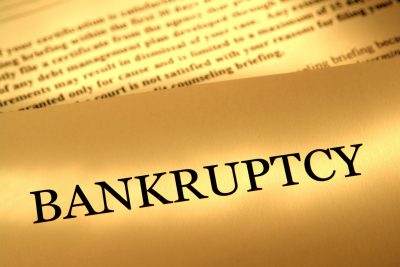Filing a Rogers County bankruptcy stops garnishments the instant we file your case. When creditors use wage garnishments to collect debts, it can be quite difficult to cover your everyday expenses. Depending on the debt’s type, an employer may deduct up to 25% of your pay. Thankfully, bankruptcy cases can erase many debts and stop most garnishment types. In this guide, you’ll find information on stopping wage garnishments during bankruptcy.
Stopping Wage Garnishment With an Automatic Stay
Upon filing for bankruptcy, a court-ordered injunction goes into effect. Known as an automatic stay, the injunction prevents creditors from initiating or continuing collection actions. The stay erases underlying debts and stops or prevents garnishments. Although an automatic stay is a useful tool, it’s not all-powerful. If you’ve filed for multiple bankruptcies, the automatic stay may only last 30 days or it may not be implemented at all.
Not All Garnishments Are Stopped
Automatic stays don’t apply to every creditor or debt. For example, a stay won’t stop a wage garnishment when:
- A debt is for spousal or child support
- You file for Chapter 7 bankruptcy
Also, because domestic support-related debts aren’t discharged, a creditor won’t have to stop the garnishment during a pending Chapter 7 case. Therefore, the court will likely not order the automatic stay. By comparison, Chapter 13 bankruptcy cases stop all garnishments. However, you’ll have to pay domestic support debts during a repayment plan of three to five years.
Stopping Garnishments Quickly
After filing a bankruptcy case, it may take several weeks for the court to notify your creditors. To put a quick stop to the garnishment, you or your lawyer should provide creditors and your employer the case number, the filing date, and the court location. Once creditors are aware of the bankruptcy filing, garnishments must stop even if an employer hasn’t yet been notified.
Recovering Previously Garnished Wages
Though you may be able to regain some of your lost wages, it’s not worthwhile to do so in most cases. It’s typically better to minimize losses through a quick bankruptcy filing. A wage garnishment must have occurred within the 90 days immediately before the filing date. Furthermore, it must exceed a set amount and you’ll have to use an exemption to protect it.
For most people, the issue is that most jurisdictions don’t have exemptions that protect cash. To recover wages lost to garnishment, you’ll have to file a claim against your creditor in bankruptcy court. The practicality of such an endeavor depends on the amount you can potentially recover and how much an attorney would charge for the claim filing.
After the Bankruptcy Case is Over
After your bankruptcy case has concluded, your previous creditors can’t resume a garnishment on a discharged debt such as a medical bill, a personal loan, or a credit card balance. However, they can re-garnish a non-dischargeable debt for which you are still responsible. If the case is dismissed without a debt discharge, the automatic stay’s benefits end and your creditors can resume collection actions on all types of debt.

